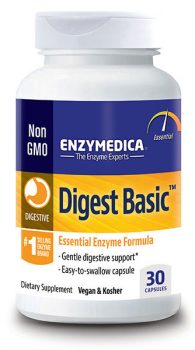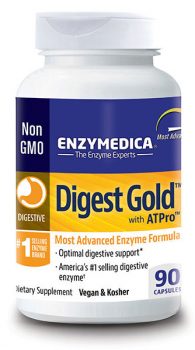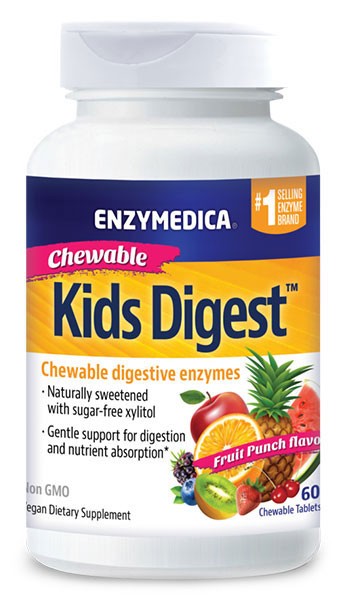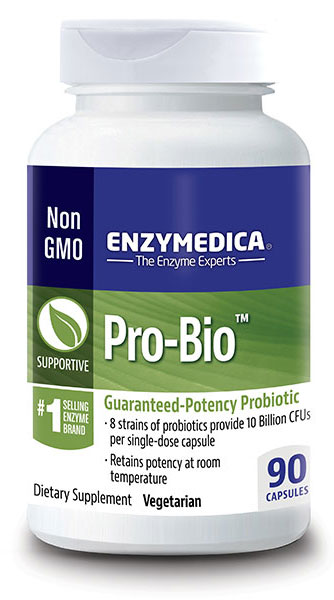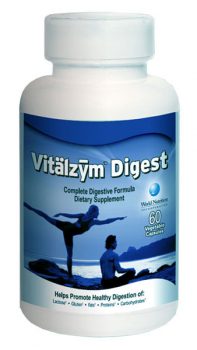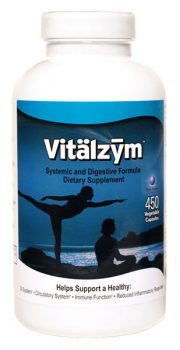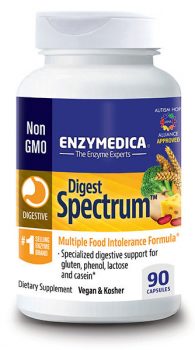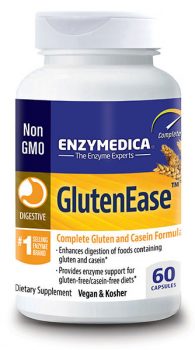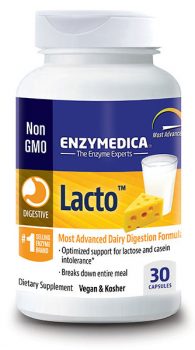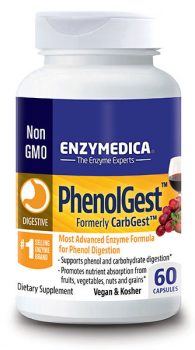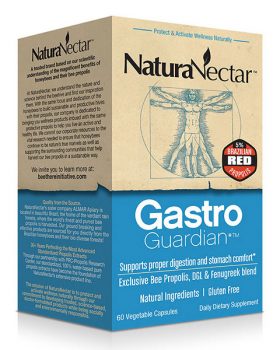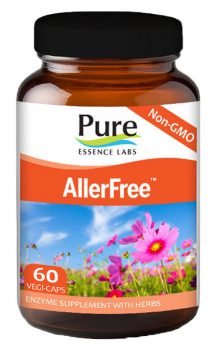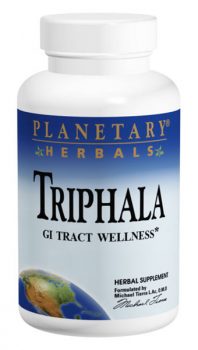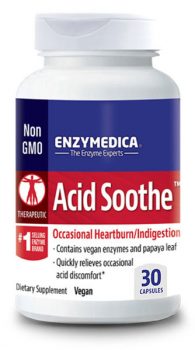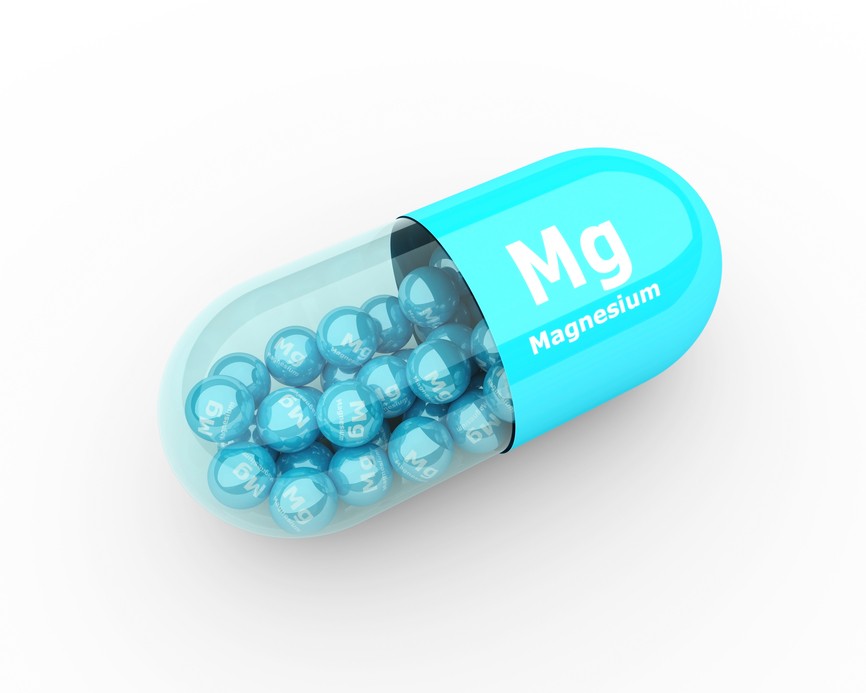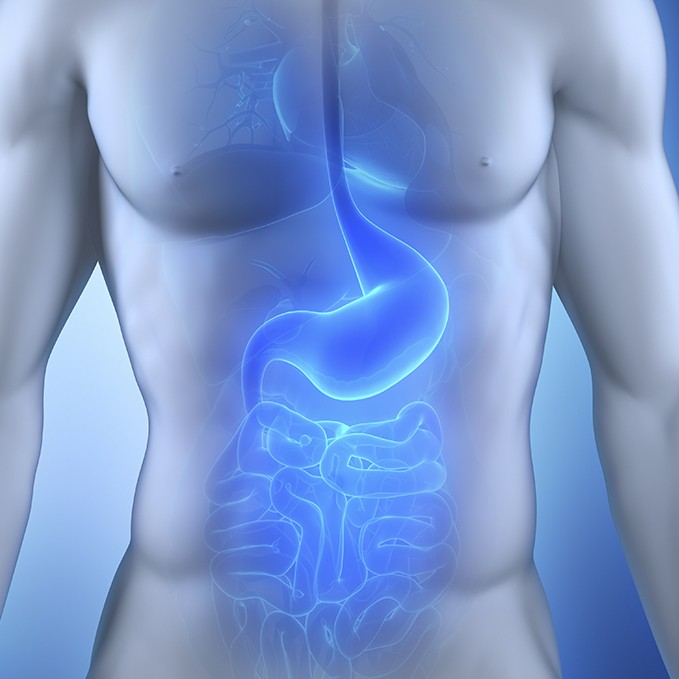
Incomplete digestion may be a contributing factor in the development of many ailments including flatulence, bloating, belching, food allergies, nausea, bad breath, bowel problems and stomach disorders. From here, things can get much worse. Disease can continue to develop when food is left undigested and begins to putrefy and ferment in the digestive tract. When this happens, finding the solutions that can help bring your belly back into balance should become a priority.
Digestive enzymes are primarily responsible for the chemical breakdown of food and constitute a large portion of digestive secretions. The human body makes different enzymes that are involved in this process.
The Digestion Process
It begins in the mouth when we chew to break down our foods. Saliva is produced and contains the enzyme amylase which is stimulated by chewing and breaks starches down into smaller molecules.
The stomach is a bit of a holding pouch. Chewed food hangs out here for just a while and is mixed with gastric acids. The parietal cells of the stomach secrete hydrochloric acid (gastric acid). Hydrochloric acid, along with pepsin, breaks down proteins to amino acids. The breakdown process continues and food is now called chyme, which is the semifluid mass of partly digested food that is passed from the stomach to the duodenum.
Hydrochloric acid secretion (hypochlorhydria) is very important and a deficiency can cause malabsorption and may result in a number of signs and symptoms including those mentioned above. An important fact is that Folic acid, vitamin B12 and iron will not be absorbed if there is too little acid. There are a number of diseases have been linked with low gastric acidity. They include asthma, celiac disease, eczema, osteoporosis and pernicious anemia.
On the other hand, an excess of hydrochloric acid (hypochlorhydria) can cause heartburn, gas and may lead to ulcers.
The small intestine is divided into three segments and secretes a variety of digestive substances. The small intestine also receives secretions and enzymes from the pancreas, liver and the gallbladder.
- The duodenum, is primarily responsible for the absorption of minerals.
- The jejunum, absorbs water-soluble vitamins, protein and carbohydrates.
- The ileum is the final section of the small intestine and absorbs fat-soluble vitamins, fat, cholesterol and bile salts.
The pancreas is your enzyme powerhouse. It produces digestive enzymes that are released into the small intestine and play a major role in digestion. There is about one and a half liters of pancreatic juice produced each day.
Pancreatic Enzymes Include:
- Lipases – Lipases function in the digestion of fats, oils and fat-soluble vitamins.
- Amylases – These break down starch molecules into smaller sugars. Amylases also break down carbohydrates into maltose.
- Proteases – are responsible for breaking down protein into smaller amino acids. Proteases include trypsin, chymotrypsin and carboxypeptidase. Proteases are also responsible for keeping the small intestine free from parasites (intestinal worms, yeast
overgrowth and bacteria). A lack of proteases can cause incomplete digestion that can lead to allergies and the formation of toxins.
The liver produces bile that is either stored by the gallbladder or secreted into the small intestine. Bile emulsifies fats and fat-soluble vitamins. It also helps keep the small intestine free from parasites. There are over 500 functions of the liver and in addition to the many jobs it has, it also metabolizes proteins, carbohydrates and cholesterol and is responsible for the detoxification of toxins, drugs and hormones.
The large intestine absorbs water, electrolytes and some of the final products of digestion. It is the ‘end’ process of waste that leaves the body.
Why Supplement?
It feels great when you’ve eaten well and your body has been energized with nutrients. But with your busy schedule, you might not always be able to eat well and your body might not have the time or energy to properly digest your meals. Additionally, food intolerance is becoming more prevalent in American society.
To reclaim the energy from your nutrients, digestive enzymes can help to stimulate optimal digestion.
For nutrient releasing power, plant enzymes also act in the stomach. They occur naturally in food or are taken as a supplement. They are essential for pre-digesting food and working with the body’s own enzymes.
Digestive Enzymes
Depending on the amount and effeciency of naturally occuring enzymes, digestive enzyme supplements may contain any combination of the following digestive enzymes. Each serves a different purpose and performs in different stages of digestion to help increase nutrient absorption.
- Bromelain – a protein-digesting enzyme found in pineapples, primarily the core. Bromelain is called a proteolytic enzyme. This means it can prevent and help tissue damage, inflammation and swelling.*
- Papain – a protein-digesting enzyme extracted from pawpaw fruit (pawpaw). Papain may also decrease inflammation and tissue damage.*
- Amylase – Breaks down starches (carbs) into smaller sugars.
- Xylanase – Breaks down soluble fiber.
- Protease – Breaks down protein.
- Alpha Galactosidase – Breaks down the carbs in raw vegetables and legumes (beans, peas, and lentils).
- Glucoamylase – Works with amylase to break down carbohydrates into glucose units.
- Lactase – Breaks down the milk sugar, lactose.
- Lipase – Breaks down fats (such as those in oils, animal products, avocado, and nuts).
- Maltase – Breaks down carbohydrates, malt, and grain sugars.
- Cellulase – Breaks down cellulose to help free nutrients in fruits and vegetables.
- Invertase – Breaks down sucrose into simple sugars (glucose and fructose).
- Pectinase (w/Phytase) – Breaks down pectin found in fruit.
- Hemicellulase – Helps break down hemicellulose (carbohydrates into glucose).
In addition, when you want digestive stimulation, Betaine HCl (hydrochloric acid) supports the environment needed to digest food in the stomach. Bitter herbs stimulate the appetite and gastric juices needed for digestion.
Digestive Health Supplements to Bring Your Belly Back into Balance
Digestive Enzymes
Enzymes are crucial for nutrients absorption, and can also reduce occasional gas, bloating and indigestion from eating problem foods.*

